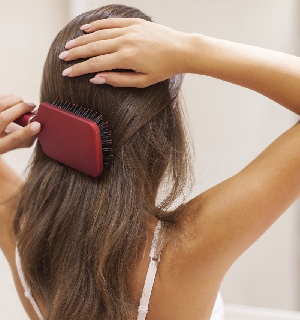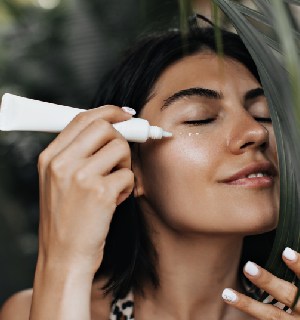Hair loss is terrifying and upsetting, and it can be even more so while you are recuperating from the physical and mental traumas that come with COVID-19. According to studies, hair loss has been observed in huge numbers among long-haul symptoms such as weariness, coughing, and muscle aches. It is talked about by many experts on stress-related hair loss and how to increase growth once you have recovered.
So, here are a few lifestyle suggestions to assist you in managing your hair loss after COVID 19:
#1 Lower your stress levels:
You should participate in stress-relieving activities. Meditation or yoga might be a good choice. If you prefer not to be outside, you can engage in creative pursuits such as painting and knitting.
The diagnosis of stress-induced telogen effluvium is usually made after ruling out other possible causes of hair loss. A blood test may be ordered to rule out a thyroid problem or a nutritional deficiency, both of which can result in hair loss.
#2 Maintain a balanced diet:
What you consume on the inside reflects on the outside; therefore, be sure what you consume is nutritious and beneficial to your body. You should also treat hair loss internally by eating healthy foods. Include chicken, fish, leafy greens, and eggs in your diet.
#3 Take nutrients for your hair:
Hair supplements aid in speeding up the damage repair process as well as the rate of hair growth. Hair supplements, such as Biotin, can be taken in addition to healthy exercises. However, before consuming anything, see your dermatologist.
#4 Speak with an expert:
If your hair is falling out in large clumps despite a healthy lifestyle, you should see a dermatologist. Don't eat anything without consulting a professional.
Patients with acute telogen effluvium or diffuse hair loss usually recover in almost 3-9 months, so be patient. All your hair and its density typically grow back, so there's no need to be concerned about going bald or looking for wigs online. Hair loss can become chronic in some situations, especially among individuals who postpone seeking treatment. A hereditary tendency to patterned baldness (of the crown area) can be revealed in some circumstances. So it's critical to get medical help as soon as possible, and it's even more crucial not to believe in the aggressively touted miracle "overnight growth" promise potion.
In a nutshell, it's critical to figure out what's causing your hair loss, be patient (around 3-6 months), and stick to the treatment plan. Here are a few suggestions for preventing hair loss:
• Include a variety of colors in your diet (rainbow diet).
• Exercise regularly.
• Get plenty of rest.
• Relieve mental tension (you can practice breathing exercises or meditation to tackle stress).
• Don't go overboard when it comes to hair disinfection.
• Don't comb your hair too much with fine bristle combs.
• If you're having trouble managing your hair loss, consult a dermatologist right away.
In addition, the following suggestions may make it easier for you to communicate despite your hearing loss:
• If you want to improve your hearing while reducing other noises around you, you might want to consider utilizing an assistive listening device.
• Make a list of your symptoms and how long you've had them. Don't forget to jot down any questions you have for your doctor.
Conclusion:
Hair shedding may occur even if you have never had a fever or COVID-19. Emotional tension can also cause a more significant number of hairs to shed than usual. Hair loss usually occurs two to three months after the stress begins. While witnessing your hair fall out in clumps can be stressful, it's critical to attempt to relax.
 Whatsapp
Whatsapp Facebook
Facebook Twitter
Twitter Instagram
Instagram Linkedin
Linkedin Pinterest
Pinterest




